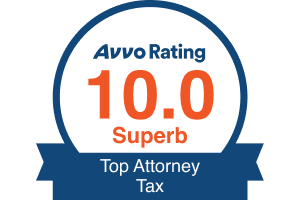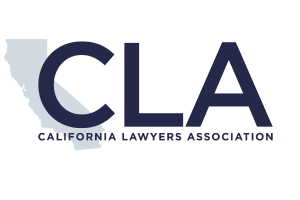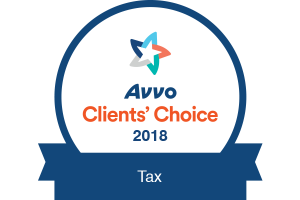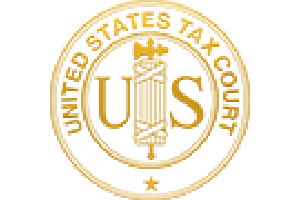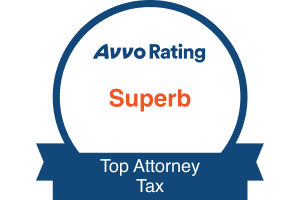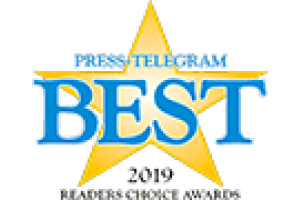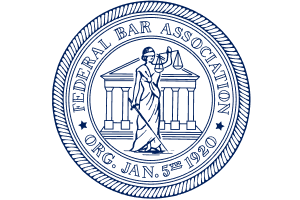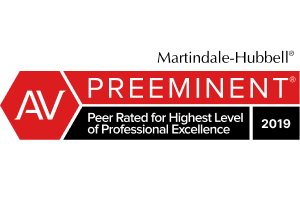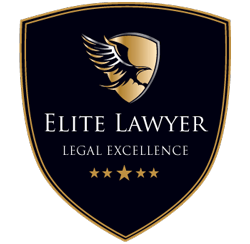Getting Results
CDTFA Sales Tax on Manufacturing in Los Angeles
CDTFA places certain sales tax obligations of manufacturers, producers, processors, and fabricators in Los Angeles based on the tangible personal property they use, produce, or sell. CDTFA Sales tax regulations have different sales tax treatment of materials, equipment, and finished products.
CDTFA Sales Tax Reg 1524: Milk and Cream Testing Equipment
- Scope: Applies to manufacturers, producers, and processors of milk and cream, as well as cooperative nonprofit associations testing milk or cream for their members.
- CDTFA Sales Tax Application:
- Testing Equipment: Sales of equipment used to test milk or cream (e.g., for butterfat content) are subject to CDTFA sales tax, as these entities are considered the consumers of such equipment.
- Exemption for Testing Supplies: Tangible personal property used directly in testing (e.g., chemicals, reagents) is exempt from CDTFA sales and use tax when purchased by cooperative nonprofit associations, provided the property is consumed in the testing process and does not become a component of the final product.
- Reference: Revenue and Taxation Code Sections 6007, 6008, 6009, 6010, and 6359.
- Purpose: Clarifies that testing equipment is taxable in Los Angeles, but certain consumable supplies used by cooperatives may qualify for exemptions, supporting fair tax administration for dairy-related activities.
Regulation 1525: Property Used in Manufacturing
- Scope: Covers tangible personal property used in manufacturing, processing, or producing items for sale, including special-purpose buildings and equipment.
- CDTFA Tax Application:
- General Rule: Manufacturers and processors are considered consumers of tangible personal property used in their operations (e.g., machinery, tools, or equipment), and CDTFA sales tax applies to the sale of such property to them.
- Exemptions:
- Raw Materials: Tangible personal property that becomes a component part of the finished product or is consumed in the manufacturing process (e.g., chemicals, catalysts) is not subject to tax when purchased for resale or direct consumption.
- Special-Purpose Buildings: Buildings and their structural components designed for unique manufacturing processes (e.g., clean rooms for semiconductor production) may qualify for exemptions if they are integral to the manufacturing process and not general-purpose structures.
- Examples:
- Taxable: General machinery, office equipment, or standard buildings used in manufacturing.
- Exempt: Chemicals consumed in processing, materials incorporated into the final product, or specialized structures like smelting furnaces.
- Reference: Revenue and Taxation Code Sections 6007, 6008, 6009, 6010, 6051, 6201, and 6366.
- Purpose: Distinguishes between taxable equipment and exempt materials or specialized structures for Los Angeles Manufacturers who may be subject to CDTFA Sales tax.
Sales Tax Regulation 1525.1: Manufacturers of Property for Aerospace Products in Los Angeles
- Scope: Specifically addresses CDTFA Sales Tax on manufacturers producing property for aerospace products, including aircraft, spacecraft, and related components in Los Angeles.
- Tax Application:
- Exemption for Research and Development: Tangible personal property used in research and development (R&D) for aerospace products may be exempt from CDTFA sales and use tax if it meets specific criteria (e.g., used exclusively for R&D and not for production).
- Manufacturing Equipment: Similar to Regulation 1525, manufacturers are consumers of general equipment, and CDTFA sales tax applies. However, property consumed in the manufacturing process (e.g., fuels, chemicals) may be exempt if it does not become part of the final product.
- Special Considerations: The CDTFA Sales Tax regulation accounts for the unique needs of aerospace manufacturing, such as high-precision tools and testing equipment, with potential exemptions for items used in federally regulated or space-related projects in Los Angeles.
- Reference: Revenue and Taxation Code Sections 6007, 6008, 6009, 6010, and specific aerospace-related provisions.
CDTFA Sales Reg.1525.2: Qualified Production Property—Manufacturing and Research and Development Equipment
- Scope: Applies to manufacturers and R&D firms in specific industries, including those classified under NAICS codes for manufacturing, biotechnology, and technology R&D.
- CDTFA Sales Tax Application:
- Partial Exemption: Effective July 1, 2014, a partial CDTFA sales and use tax exemption applies to qualified tangible personal property used in manufacturing or R&D, such as:
- Machinery and equipment used primarily (over 50%) in manufacturing or R&D.
- Equipment for pollution control or alternative energy production.
- Materials consumed in the manufacturing process.
- Eligibility: Businesses must meet criteria outlined in Revenue and Taxation Code Section 6377.1, including operating in designated industries and using the property for qualified purposes.
- Limitations: The exemption does not apply to general-purpose equipment (e.g., office furniture) or property used less than 50% in qualified activities.
- Partial Exemption: Effective July 1, 2014, a partial CDTFA sales and use tax exemption applies to qualified tangible personal property used in manufacturing or R&D, such as:
- Reference: Revenue and Taxation Code Sections 6377.1, 6007, 6008, 6009, and 6010.
CDTFA Sales Tax Reg 1525.3: Manufacturing and Research and Development by Certain Printers
- Scope: Addresses printers and publishers engaged in manufacturing printed materials (e.g., newspapers, books) and related R&D activities.
- CDTFA Sales Tax Application:
- Exemption for Printing Materials: Tangible personal property consumed in the printing process (e.g., ink, paper) is exempt from CDTFA Sales if it becomes part of the finished product or is consumed during production.
- CDTFA Sales Taxable Equipment: Printers are consumers of machinery and equipment (e.g., printing presses), and sales tax applies to these purchases.
- R&D Exemption: Property used in R&D for printing processes (e.g., developing new printing techniques) may qualify for exemptions, similar to Regulation 1525.2.
- Reference: Revenue and Taxation Code Sections 6007, 6008, 6009, 6010, and 6377.1.
CDTFA Sales Tax Reg 1525.4: Farm Equipment and Machinery
- Scope: Applies to manufacturers, producers, or processors in the agricultural industry using farm equipment and machinery.
- CDTFA Sales Tax Application:
- Partial Exemption: A partial CDTFA sales and use tax exemption applies to qualified farm equipment and machinery used primarily in producing or harvesting agricultural products.
- Eligibility: Equipment must be used at least 50% of the time in qualified agricultural activities. Examples include tractors, irrigation systems, and harvesting machinery.
- Exclusions: General-purpose vehicles (e.g., pickup trucks) or equipment used for non-agricultural purposes do not qualify.
- Reference: Revenue and CDTFA Taxation Code Sections 6356.5, 6007, 6008, 6009, and 6010.
CDTFA Sales Tax Reg 1526: Smelters and Refiners
- Scope: Covers smelters and refiners processing ores, metals, or petroleum products.
- CDTFA Sales Tax Application:
- Exempt Materials: Tangible personal property consumed in smelting or refining (e.g., fluxes, catalysts) is sales tax exempt if it does not become part of the final product.
- Taxable Equipment: Smelters and refiners are consumers of machinery and equipment (e.g., furnaces, conveyors), and sales tax applies to these purchases.
- Special-Purpose Structures: Furnaces and similar structures integral to the smelting process may qualify for exemptions, similar to Regulation 1525.
- Reference: Revenue and Taxation Code Sections 6007, 6008, 6009, and 6010.
CDTFA Sales Tax Reg1527: Motion Picture Production
- Scope: Applies to the production of motion pictures, including films, television shows, and digital media.
- Tax Application:
- CDTFA Sales Taxable Property: Producers are consumers of tangible personal property used in production (e.g., cameras, lighting equipment), and CDTFA sales tax applies to these purchases.
- Exempt Materials: Property consumed in the production process (e.g., film stock, special effects materials) may be exempt from CDTFA sales tax if it does not become part of the final product.
- Special Considerations: The regulation accounts for the unique nature of motion picture production, where much of the “product” (e.g., the film itself) is intangible, affecting tax applicability.
- Reference: Revenue and Taxation Code Sections 6007, 6008, 6009, and 6010.
Summary of CDTFA Sales Tax Position:
- Consumer vs. Retailer: Manufacturers, producers, processors, and fabricators are generally considered consumers of equipment and machinery used in their operations, making these purchases subject to sales tax. However, they may purchase raw materials or consumables for resale or exemption if consumed in production.
- Exemptions: Exemptions are available for:
- Materials that become part of the finished product or are consumed in the process.
- Special-purpose buildings or equipment integral to manufacturing.
- Qualified R&D property, particularly in aerospace, printing, and technology sectors.
- Specific agricultural or smelting/refining equipment and materials.
- Industry-Specific Guidance: The regulations provide tailored rules for industries like dairy, aerospace, agriculture, printing, smelting, and motion picture production, reflecting the unique needs of each sector.
- Partial Exemptions: Certain equipment (e.g., farm machinery, manufacturing equipment) qualifies for partial exemptions to encourage investment and economic growth.
Article 3 focuses on the tax obligations of manufacturers, producers, processors, and fabricators, detailing how sales and use taxes apply to the tangible personal property they use, produce, or sell. The regulations clarify the tax treatment of materials, equipment, and finished products, addressing scenarios such as consumption, resale, and specific industry practices. The article includes several regulations (1524–1527), each addressing distinct aspects of these activities.
Key Regulations in Article 3
Regulation 1524: Milk and Cream Testing Equipment
- Scope: Applies to manufacturers, producers, and processors of milk and cream, as well as cooperative nonprofit associations testing milk or cream for their members.
- Tax Application:
- Testing Equipment: Sales of equipment used to test milk or cream (e.g., for butterfat content) are subject to sales tax, as these entities are considered the consumers of such equipment.
- Exemption for Testing Supplies: Tangible personal property used directly in testing (e.g., chemicals, reagents) is exempt from sales and use tax when purchased by cooperative nonprofit associations, provided the property is consumed in the testing process and does not become a component of the final product.
- Reference: Revenue and Taxation Code Sections 6007, 6008, 6009, 6010, and 6359.
- Purpose: Clarifies that testing equipment is taxable, but certain consumable supplies used by cooperatives may qualify for exemptions, supporting fair tax administration for dairy-related activities.
Regulation 1525: Property Used in Manufacturing
- Scope: Covers tangible personal property used in manufacturing, processing, or producing items for sale, including special-purpose buildings and equipment.
- Tax Application:
- General Rule: Manufacturers and processors are considered consumers of tangible personal property used in their operations (e.g., machinery, tools, or equipment), and sales tax applies to the sale of such property to them.
- Exemptions:
- Raw Materials: Tangible personal property that becomes a component part of the finished product or is consumed in the manufacturing process (e.g., chemicals, catalysts) is not subject to tax when purchased for resale or direct consumption.
- Special-Purpose Buildings: Buildings and their structural components designed for unique manufacturing processes (e.g., clean rooms for semiconductor production) may qualify for exemptions if they are integral to the manufacturing process and not general-purpose structures.
- Examples:
- Taxable: General machinery, office equipment, or standard buildings used in manufacturing.
- Exempt: Chemicals consumed in processing, materials incorporated into the final product, or specialized structures like smelting furnaces.
- Reference: Revenue and Taxation Code Sections 6007, 6008, 6009, 6010, 6051, 6201, and 6366.
- Purpose: Distinguishes between taxable equipment and exempt materials or specialized structures, ensuring manufacturers are taxed appropriately while supporting exemptions for production-critical items.
Regulation 1525.1: Manufacturers of Property for Aerospace Products
- Scope: Specifically addresses manufacturers producing property for aerospace products, including aircraft, spacecraft, and related components.
- Tax Application:
- Exemption for Research and Development: Tangible personal property used in research and development (R&D) for aerospace products may be exempt from sales and use tax if it meets specific criteria (e.g., used exclusively for R&D and not for production).
- Manufacturing Equipment: Similar to Regulation 1525, manufacturers are consumers of general equipment, and sales tax applies. However, property consumed in the manufacturing process (e.g., fuels, chemicals) may be exempt if it does not become part of the final product.
- Special Considerations: The regulation accounts for the unique needs of aerospace manufacturing, such as high-precision tools and testing equipment, with potential exemptions for items used in federally regulated or space-related projects.
- Reference: Revenue and Taxation Code Sections 6007, 6008, 6009, 6010, and specific aerospace-related provisions.
- Purpose: Provides tailored tax guidance for the aerospace industry, encouraging innovation by exempting R&D-related property while maintaining tax obligations for standard equipment.
Regulation 1525.2: Qualified Production Property—Manufacturing and Research and Development Equipment
- Scope: Applies to manufacturers and R&D firms in specific industries, including those classified under NAICS codes for manufacturing, biotechnology, and technology R&D.
- Tax Application:
- Partial Exemption: Effective July 1, 2014, a partial sales and use tax exemption applies to qualified tangible personal property used in manufacturing or R&D, such as:
- Machinery and equipment used primarily (over 50%) in manufacturing or R&D.
- Equipment for pollution control or alternative energy production.
- Materials consumed in the manufacturing process.
- Eligibility: Businesses must meet criteria outlined in Revenue and Taxation Code Section 6377.1, including operating in designated industries and using the property for qualified purposes.
- Limitations: The exemption does not apply to general-purpose equipment (e.g., office furniture) or property used less than 50% in qualified activities.
- Partial Exemption: Effective July 1, 2014, a partial sales and use tax exemption applies to qualified tangible personal property used in manufacturing or R&D, such as:
- Reference: Revenue and Taxation Code Sections 6377.1, 6007, 6008, 6009, and 6010.
- Purpose: Incentivizes investment in manufacturing and R&D by reducing tax burdens on specialized equipment, supporting economic growth in high-tech and industrial sectors.
Regulation 1525.3: Manufacturing and Research and Development by Certain Printers
- Scope: Addresses printers and publishers engaged in manufacturing printed materials (e.g., newspapers, books) and related R&D activities.
- Tax Application:
- Exemption for Printing Materials: Tangible personal property consumed in the printing process (e.g., ink, paper) is exempt if it becomes part of the finished product or is consumed during production.
- Taxable Equipment: Printers are consumers of machinery and equipment (e.g., printing presses), and sales tax applies to these purchases.
- R&D Exemption: Property used in R&D for printing processes (e.g., developing new printing techniques) may qualify for exemptions, similar to Regulation 1525.2.
- Reference: Revenue and Taxation Code Sections 6007, 6008, 6009, 6010, and 6377.1.
- Purpose: Supports the printing industry by exempting consumable materials and R&D property, while ensuring standard equipment remains taxable.
Regulation 1525.4: Farm Equipment and Machinery
- Scope: Applies to manufacturers, producers, or processors in the agricultural industry using farm equipment and machinery.
- Tax Application:
- Partial Exemption: A partial sales and use tax exemption applies to qualified farm equipment and machinery used primarily in producing or harvesting agricultural products.
- Eligibility: Equipment must be used at least 50% of the time in qualified agricultural activities. Examples include tractors, irrigation systems, and harvesting machinery.
- Exclusions: General-purpose vehicles (e.g., pickup trucks) or equipment used for non-agricultural purposes do not qualify.
- Reference: Revenue and Taxation Code Sections 6356.5, 6007, 6008, 6009, and 6010.
- Purpose: Reduces tax burdens for agricultural producers, supporting the farming industry by lowering costs for essential equipment.
Regulation 1526: Smelters and Refiners
- Scope: Covers smelters and refiners processing ores, metals, or petroleum products.
- Tax Application:
- Exempt Materials: Tangible personal property consumed in smelting or refining (e.g., fluxes, catalysts) is exempt if it does not become part of the final product.
- Taxable Equipment: Smelters and refiners are consumers of machinery and equipment (e.g., furnaces, conveyors), and sales tax applies to these purchases.
- Special-Purpose Structures: Furnaces and similar structures integral to the smelting process may qualify for exemptions, similar to Regulation 1525.
- Reference: Revenue and Taxation Code Sections 6007, 6008, 6009, and 6010.
- Purpose: Supports the smelting and refining industry by exempting consumable materials and specialized structures, while taxing standard equipment.
Regulation 1527: Motion Picture Production
- Scope: Applies to the production of motion pictures, including films, television shows, and digital media.
- Tax Application:
- Taxable Property: Producers are consumers of tangible personal property used in production (e.g., cameras, lighting equipment), and sales tax applies to these purchases.
- Exempt Materials: Property consumed in the production process (e.g., film stock, special effects materials) may be exempt if it does not become part of the final product.
- Special Considerations: The regulation accounts for the unique nature of motion picture production, where much of the “product” (e.g., the film itself) is intangible, affecting tax applicability.
- Reference: Revenue and Taxation Code Sections 6007, 6008, 6009, and 6010.
- Purpose: Clarifies tax obligations for the motion picture industry, ensuring exemptions for consumable materials while taxing production equipment.
Additional Context
- Recent Updates: In response to recent wildfires, the CDTFA extended the January 31, 2025, sales and use tax filing deadline for impacted Los Angeles County taxpayers to April 30, 2025. Relief and extensions beyond Los Angeles County are also available upon request, as noted in multiple CDTFA sources.
- CDTFA’s Mission: The regulations align with the CDTFA’s mission to serve the public through fair, effective, and efficient tax administration, ensuring clarity for businesses in complex industries.
- Revenue and Taxation Code: The regulations reference various sections of the Revenue and Taxation Code, providing the legal basis for tax applications and exemptions.
Summary of Key Themes
- Consumer vs. Retailer: Manufacturers, producers, processors, and fabricators are generally considered consumers of equipment and machinery used in their operations, making these purchases subject to sales tax. However, they may purchase raw materials or consumables for resale or exemption if consumed in production.
- Exemptions: Exemptions are available for:
- Materials that become part of the finished product or are consumed in the process.
- Special-purpose buildings or equipment integral to manufacturing.
- Qualified R&D property, particularly in aerospace, printing, and technology sectors.
- Specific agricultural or smelting/refining equipment and materials.
- Industry-Specific Guidance: The regulations provide tailored rules for industries like dairy, aerospace, agriculture, printing, smelting, and motion picture production, reflecting the unique needs of each sector.
- Partial Exemptions: Certain equipment (e.g., farm machinery, manufacturing equipment) qualifies for partial exemptions to encourage investment and economic growth.
- Compliance: Businesses must maintain proper documentation (e.g., resale certificates, exemption certificates) to claim exemptions and comply with CDTFA requirements.
Practical Implications for Businesses
- Tax Planning: Businesses in these industries should carefully review their purchases to identify exempt materials or equipment, potentially reducing tax liabilities.
- Record-Keeping: Accurate records and segregation of taxable vs. exempt purchases are critical for compliance, especially for partial exemptions.
- Consultation: Given the complexity of these regulations, businesses may benefit from consulting tax professionals, such as those at firms like the Ben-Cohen Law Firm, to navigate exemptions and compliance.
- Disaster Relief: Businesses affected by recent wildfires should note the extended filing deadline (April 30, 2025) and explore additional relief options through the CDTFA’s State of Emergency Tax Relief page.
We recognize that even the most experienced business professionals in Los Angeles may encounter challenges with sales tax matters. Our team at the Tax Lawyers Group, APC is dedicated to providing strategic solutions to optimize your tax position. We proactively identify potential sales tax issues and implement preventive measures to avoid tax and personal complications. Whether you’re addressing a current sales tax concern or seeking guidance to prevent future ones, we’re here to help. Contact us at (310) 788-9820 or complete our online form to schedule a consultation with a tax attorney at our Los Angeles office. Let us support you in achieving a secure financial future.


